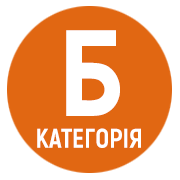THE OTTOMAN EMPIRE IN THE INTERCIVILIZATION DIALOGUE IN SOUTHERN UKRAINE. THOUGHTS ON THE NEW APPROACHES TO TURKISH HISTORIOGRAPHY
DOI:
https://doi.org/10.32999/ksu2786-5118/2021-33-3Keywords:
İlber Ortaylı, Ottoman Empire, heritage, history of Ukraine, Northern Black Sea Coast, Crimea.Abstract
The article is devoted to reviewing the book by the well-known Turkish historian İlber Ortaylı "Ottomans on Three Continents". The authors consistently analyze the main postulates of the work in the history of Ottoman possessions in the Crimea and the Northern Black Sea region, focusing on the role of the Ottoman Empire in the interaction of Black Sea civilizations in the late Middle Ages and early modern times. The authors prove that the history of the Ottoman Empire is essential for understanding the history of Ukraine. Ottoman influences significantly impacted the history of the Ukrainian people and other indigenous peoples of Ukraine – Crimean Tatars, Karaites and Krymchaks, Crimean Greeks. The authors agree with the thesis of the Turkish researcher about the significant and sometimes decisive influence of the Ottomans on the situation in the Black Sea region in the XV–XVIII centuries. Furthermore, the authors express their views on certain statements of the book. In particular, İlber Ortaylı proves that the Ottoman Empire was a "state of the Middle Eastern Islamic type". Its presence in the Black Sea resulted in the interaction of Islamic Mediterranean civilization with Eastern European Orthodoxy and Ukraine were at the centre of this interaction. However, the authors cannot agree with the historian's statement about the primary basis of the empire – the system of the state, especially military, slavery (devshirme). It allowed to creation of a vast empire, The Sublime or Ottoman Porte. However, slavery could not create social mechanisms of progress. The civilizational basis of the Ottoman Empire was its steppe, Turkic-steppe, essence. In the Ottoman Empire, Western modernization borrowings were superficial, served utilitarian-pragmatic purposes, and did not change the foundations of civilization. Such selectable reforms were the reason why the Omans lost their possessions in the Crimea and the Northern Black Sea region to the Russian Empire in the eighteenth century. Significantly, both empires claim the imperial, not civilizational, heritage of the Roman Empire. The intelligence emphasizes that these claims are not sufficiently substantiated.



